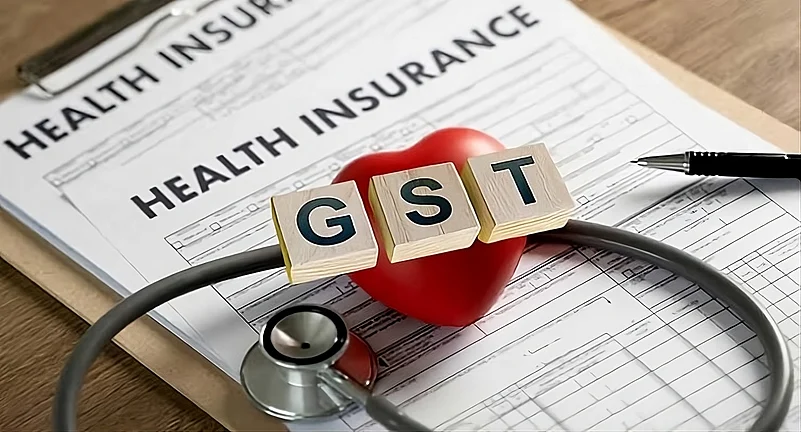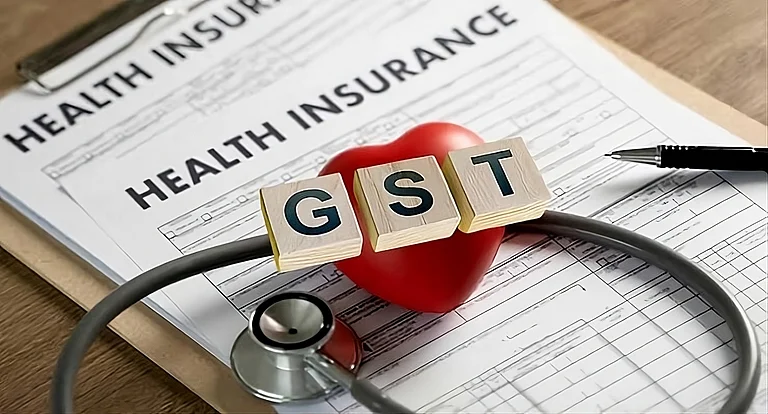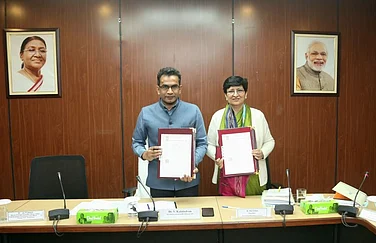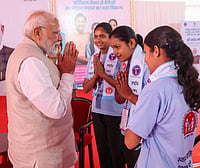In a significant policy move aimed at enhancing healthcare affordability and accessibility, the Goods and Services Tax (GST) Council has announced a comprehensive set of tax rationalisation measures spanning pharmaceuticals, medical devices, health insurance, fitness services, and nutrition, among others. These are expected to lessen treatment costs, ease the financial strain on patients, and promote preventive care, say stakeholders.
Union Health Minister JP Nadda, writing on social media platform X, said the changes would “enhance ease of living, benefit various industries, and provide much-needed relief across the healthcare ecosystem and beyond.”
Following the GST Council meeting chaired by Union Finance Minister Nirmala Sitharaman, the GST on 33 critical cancer drugs and select medicines for rare diseases has been brought down from 12 per cent to zero, with effect from September 22.
“GST on 33 life-saving medicines has been reduced to nil from 12 per cent,” Sitharaman said, underscoring the alignment of the move with Prime Minister Narendra Modi’s Independence Day August 15, 2025 pledge to make healthcare more accessible.
Additionally, three other essential medicines, which earlier attracted a 5 per cent GST, have now been fully exempted—a development widely welcomed by the oncology community.
“Many of the medicines now exempt from GST are essential in paediatric oncology and bone marrow transplants. This will reduce treatment delays and ease the financial strain on families,” said Dr. Nita Radhakrishnan, Head of Pediatric Hematology Oncology at PGI Child Health, Noida.
Dr. Khyatee, Senior Physiotherapist and former AIIMS research officer, agreed, pointing out that many cancer patients need supportive therapies for a quality life. “Lower drug prices allow patients to focus on healing. This creates space for physiotherapy, mental health care, and nutrition counselling—all essential for recovery and quality of life.” The director of Pratyaksh Medical Care also felt the move was long-awaited and finally delivered much relief to patients and their families. She also highlighted how the increasing number of cases in the country is pushing many families below the poverty line.
Medical devices and diagnostic equipment such as spectacles and goggles, which will now attract a reduced rate of 5 per cent—down from the earlier 28 per cent—are expected to meet the vision aid demand of a large number of people.
Dr. Jay Goyal, Eye Surgeon and Director at Surya Eye Hospital, Mumbai, termed the reduction a vital intervention. “This will make vision correction more affordable for families and help children improve their quality of life. Studies warn that by 2050, nearly 50% of school-going children in India could be affected by myopia if timely measures are not taken. Making spectacles affordable is a very significant move,” he said.
In what is being called a major boost for insurance penetration, GST on life and health insurance premiums—previously taxed at 18 per cent—has been removed. This includes family floater plans and senior citizen policies.
Aam Aadmi Party Rajya Sabha member Raghav Chadha also welcomed the move, exempting life and health insurance products from GST, which he called a major relief that would ease the financial strain on citizens.
Taking to social media platform X, he said, “Life and health insurance are a necessity, not a luxury. Every Indian must be protected. I, along with many others, had demanded a 0% GST rate on these insurance products, and I am glad this burden has finally been removed.”
The AAP leader further urged the government to promote wider insurance adoption, emphasizing that “life’s uncertainties should never wipe out a family’s lifelong savings.”
Vishal Bali, Executive Chairman of Asia Healthcare Holdings, concurred: “Only 41% of households in India are covered by government or private health insurance schemes, leaving a significant gap. The reduction in GST from 18% to nil should boost both health and life insurance segments, which are critical for citizens.”
Nutrition-related exemptions continue, with tax exemptions or lower GST maintained on essential items such as milk, paneer, and dry fruits. The GST on diabetic foods and preserved fish, fruit pulp, and milk-based drinks has been cut from 12 per cent to 5 per cent. Similarly, gyms and fitness centres now fall under the 5 per cent slab, making preventive healthcare and wellness more accessible.
Medical essentials such as anaesthetics, oxygen, surgical gloves, bandages, and glucometers now attract a reduced GST of 5 per cent. This reduction is particularly aimed at Tier-2 and Tier-3 cities, where the cost burden is often higher due to weaker health infrastructure.
Several diagnostic kits and reagents have also moved to the 5 per cent bracket, a move expected to catalyse preventive health practices. “The GST cut on diagnostic kits and reagents will also catalyse preventive health,” Bali added.
Dr. Vijay Kumar Agarwal, Director and HoD of ICU & Pulmonology at Yatharth Super Speciality Hospital, Faridabad, also observed that while the reforms are “a welcome step toward affordable healthcare,” their success would hinge on execution. “Timely GST refunds, transparent implementation, and strict checks on profiteering are essential to ensure that the benefits reach patients. If executed effectively, these reforms can strengthen preventive care and improve treatment adherence.”
Dr. Shobha Gupta, Medical Director at Mother’s Lap IVF Centre, was of the view that the reductions would benefit patients undergoing fertility treatment. “In IVF and fertility treatments, where diagnostics and consumables form a major part of costs, these reforms will help us provide care at a more affordable level. This move reflects a recognition that healthcare is a necessity, not a luxury.”
Dr. Karuna Malhotra, Founder of the Cosmetic Skin and Homeo Clinic, was equally hopeful: “In dermatology, long-term medications and advanced equipment make treatments expensive. Reduced GST will make both chronic and preventive skin care more accessible.”
Ameera Shah, President of NATHEALTH, added: “This is a timely and progressive step. With rising incidences of cancer and rare diseases, the removal of GST on essential medicines will improve affordability and support early diagnosis and intervention. Standardising GST rates across healthcare products also enhances transparency and system-wide consistency.”
The GST on job work in pharmaceutical manufacturing and biomedical waste treatment services has been cut from 12 per cent to 5 per cent, a measure likely to lower production costs and address inverted duty structures in the sector.
Rajiv Nath, Forum Coordinator of the Association of Indian Medical Device Industry (AiMeD), welcomed the move but cautioned against implementation delays. “Manufacturers need timely refunds for accumulated input tax credit to avoid losses due to inverted duty structures. Adequate time must be provided to revise packaging and update MRPs, to prevent allegations of profiteering.”
He added that effective execution would bring down retail prices and improve access to affordable medical equipment.
Dr. Agarwal and Nath’s concerns about timely refunds were echoed by Union Commerce and Industry Minister Piyush Goyal, who today at a press conference assured that industry players across sectors are pledging to pass on the benefits to consumers.
In a further boost to healthcare affordability, the Council has removed GST on individual health and life insurance premiums, which were previously taxed at 18 per cent. “The move will make insurance more affordable for the common man and help expand coverage across the country,” the Finance Minister said.
Dr. Abhishek Vaish, Orthopaedic Surgeon at Indraprastha Apollo Hospital, emphasised its importance for trauma and sports injury care. “Reducing GST on medical devices lowers treatment expenses. For athletes and young individuals, timely and affordable treatment is critical. The exemption of GST on health insurance is a welcome step.”
DS Negi, CEO of Rajiv Gandhi Cancer Institute and Research Centre, one of Asia’s well-known cancer hospitals, described the move as a “milestone in healthcare reform.”
“Healthcare is not just about access to medicines—it is about dignity, equity, and hope. By reducing GST on cancer drugs and insurance, the government is reaffirming that citizens’ health is a national priority.”
Harsha Vardhan Agarwal, President of FICCI, also noted the potential for systemic impact: “Reducing GST on life-saving medicines to zero or 5 per cent will significantly improve patient access and affordability.” Echoing similar views, Sudarshan Jain, Secretary General of the Indian Pharmaceutical Alliance, said the move would also ease supply chain pressures and help ensure availability across hospitals and pharmacies.
The Medical Technology Association of India (MTaI), welcoming the reforms, emphasised their impact on affordability and access. “Lower levies on diagnostics and medical devices will widen their reach, while reduced insurance costs and lower-cost medical supplies will bring particular relief to the elderly,” said MTaI Chairman Pavan Choudary.
The reforms, when implemented in full, are likely to reduce out-of-pocket expenditure, promote early diagnosis, and expand insurance coverage. By placing patient welfare at the centre of fiscal policy, the Council’s decisions mark a decisive shift towards equitable healthcare access in India, said the experts.



























